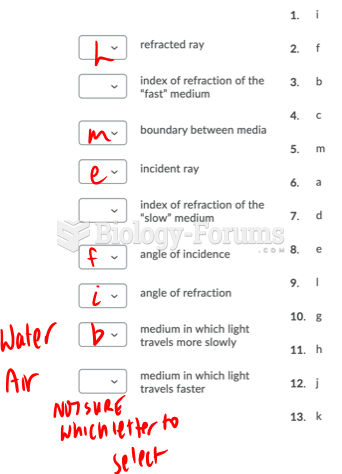|
|
|
More than 150,000 Americans killed by cardiovascular disease are younger than the age of 65 years.
Your skin wrinkles if you stay in the bathtub a long time because the outermost layer of skin (which consists of dead keratin) swells when it absorbs water. It is tightly attached to the skin below it, so it compensates for the increased area by wrinkling. This happens to the hands and feet because they have the thickest layer of dead keratin cells.
Children with strabismus (crossed eyes) can be treated. They are not able to outgrow this condition on their own, but with help, it can be more easily corrected at a younger age. It is important for infants to have eye examinations as early as possible in their development and then another at age 2 years.
Eat fiber! A diet high in fiber can help lower cholesterol levels by as much as 10%.
The human body produces and destroys 15 million blood cells every second.







